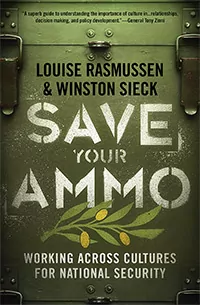
Looking for an excuse to read more fiction? Fiction reading can help with understanding others.
A recent study shows that children who read more fiction stories are better at inferring what other people are thinking and feeling.
Being good at understanding others is important, not just for psychologists.
Think about this. What does a preschooler bringing their pet rock to class for show and tell have in common with a defense attorney making a closing argument to a jury, a branch manager presenting an idea about how to increase next quarter’s profits, and a creative director pondering a slogan for a new product line?
They all fare better if they can predict their audience’s reactions. And it’s even more difficult when they’re trying to understand an audience from another culture.
Understanding Others and Fiction
Understanding others is not something we’re taught in school. Not explicitly, anyway. A common argument against homeschooling is that it deprives students of interactions with others and of opportunities to develop social skills.
Unfortunately, merely being exposed to people doesn’t automatically help you understand them. You can’t see what’s going on inside them.
Luckily, there is one way you can see and experience what other people are thinking and feeling; by reading fiction books.
Fiction books show you what goes on inside key characters’ minds. They’re ripe with descriptions of mental states like beliefs, desires, and emotions. In fact, a common way authors add suspense to their stories is by introducing characters with conflicting beliefs and competing goals.
The Effects of Exposure to Fiction
Cognitive scientist Raymond Mar from York University has conducted several scientific studies demonstrating that fiction reading make people better at understanding others.
Along with his colleagues Jennifer Tackett and Chris Moore, Mar recently published a study showing that exposure to fictional stories influence theory-of-mind development in preschoolers, but only in some media.
Theory-of-mind is key to understanding others in that it refers to all the knowledge we have about other’s minds.
In their study, the researchers first measured 55 children’s exposure to fiction through three types of media: books, films, and television shows. The kids were aged 4-7. Their reading levels ranged from ‘didn’t know how to read’ to ‘just learning how to read’.
This meant most of the fiction books they had been exposed to were read to them. This was important in the study as it made the comparison between different types of media a little more fair. Listening to a story read from a book is more similar to seeing a story in a film or TV-show than reading it yourself.
To measure exposure, the researchers gave recognition tests to the children’s parents. These tests listed a large number of either book authors, or titles of books, films, and TV-shows. The parents were asked which authors and titles they recognized.
The researchers then had the children complete 5 tasks designed to assess how skilled they were at understanding others.
In one of the tasks the children were shown a toy figure of a man and a drawing of a cookie and a carrot. They were asked which of the snacks they would like to have. Whichever they said, they were told that the man preferred the other snack. They were then asked the key question, “which snack will the man choose?” If they answered the opposite of what they wanted for themselves, they passed. To get it right, the children had to understand what it means to ‘prefer’ something.
To make sure some of the children didn’t perform better just because they knew more words in general, the researchers also assessed their vocabulary.
Fiction (in Some Forms) Makes Understanding Others Easier
Mar and his colleagues found that children who were more exposed to children’s books performed better on the tasks that evaluated how good they were at understanding others. They also found a beneficial effect of watching children’s movies, but no effect for TV-shows.
The authors speculate that both reading and movie watching are activities children and parents do together. This means there is more likely to be a conversation about mental states, including parents asking questions to check their understanding. And, perhaps this dialogue plays an important role in helping children develop a better understanding of all the mental states people can have, when they have them, and how they express them.
This raises the question: is understanding others only improved by fiction reading for children? The answer is no. Mar has published another study showing similar benefits for adults.
Indulge, Read More Fiction
A common way to poke fun at someone who’s behaving oddly is to say, he or she should ‘come with instructions.’ That’s funny, because of course people don’t come with instructions.
But, in a way, fiction books are instruction manuals for understanding others.
So, go ahead. Indulge in more fiction.
Are you’re looking for some pointers for mental state-packed summer reads? Here are a few (grown-up) books I have enjoyed because they offer mind blowing, pardon the pun, insight into the thoughts and feelings of complex characters: Defending Jacob, Gone Girl, and The Help.
Image credit: StockSnap
References

